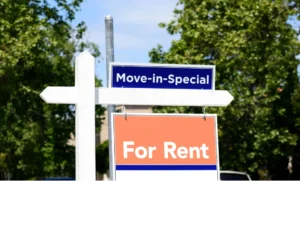Advertising and Fair Housing – Forget About Freedom of Speech
by Charles Brown
 Your occupancy rates are down and you are competing with other apartment communities for residents.
Your occupancy rates are down and you are competing with other apartment communities for residents.
You have a novel idea – Hey! Maybe some creative advertising would help!
You create a stunning brochure with pictures from your holiday party with everyone having a good time and a guy dressed like the Easter Bunny in the background. You put up some billboards with pictures of your smiling staff members posing around the swimming pool.
The next thing you know, you have a complaint filed against you claiming that your advertising violates the Fair Housing Act.
The complaint says that 7 out of the 10 people in the pictures on your billboards are Hispanic and that does not reasonably represent the majority and minority groups in your area. The complaint also says that the Easter Bunny in the brochure implies that you are discriminating against non-Christians.
Wait a minute. This is the U.S.A. What about freedom of speech? The First Amendment? You mean I cannot put anything I want to in my advertisements? That’s right.
An apartment owner in Virginia was fined a substantial amount of money for using all white models in their brochure because the models were not “clearly definable as reasonably representing the majority and minority groups in the metropolitan area.” Your billboard might be a problem because more of the residents in your community are members of racial groups other than what is shown in your billboard picture. However, you may take comfort in knowing that the Department of Housing and Urban Development (HUD) does not consider the use of the Easter Bunny to be discriminatory. So your brochure is probably okay.
The Fair Housing Act says that you may not publish advertisements which “indicate any preference, limitation, or discrimination or the intention to make a preference, limitation, or discrimination because of race, color, religion, sex, disability, familial status, or national origin.”
Obviously, your ads may not say something blatant such as “no children” or “no Catholics.” But what about the more subtle aspects of your ads? The general rule is to describe the property and not the people who live there and the ad will be acceptable. Phrases like “no wheel chairs allowed” or “independent living” discriminate against people with disabilities. But, it is acceptable to say that your property is “handicapped accessible” or has “wheelchair ramps” because these are descriptions of the facilities.
An ad stating that your property is “great for Jewish families” is unacceptable because it indicates a preference for renting to Jewish families. Describing your property as “near the new Catholic Community Center” may also show a preference for a particular type of resident. However, using terms like “desirable neighborhood” or “great location” is not discriminatory.
Here Are Some Tips to Avoid Problems with Advertising
1. Review your written materials and advertising materials. Get rid of anything that may give rise to a discrimination complaint. Your advertisements and community newsletter should portray a community that is accessible to the protected classes.
2. Add the Fair Housing Logo to all of your advertising materials.
3. If room provides, put a statement in your advertising that contains the following Fair Housing message:
WE DO BUSINESS IN ACCORDANCE WITH THE FAIR HOUSING ACT IT IS ILLEGAL TO DISCRIMINATE AGAINST ANY PERSON BECAUSE OF RACE, COLOR, RELIGION, SEX, HANDICAP, FAMILIAL STATUS, OR NATIONAL ORIGIN
4. Describe the apartment and amenities. Do not describe who you think would be happy renting there.
5. The people in any pictures in your advertising should reflect the majority and minority members of your community. If your staff does not reflect the make-up of the community, do not use a picture of them in your advertisements. Likewise, using a photograph from one of your community events may be a bad idea if it does not represent the majority and minority members of your metropolitan area.
6. If you are not sure whether something in your advertisement is a Fair Housing violation, leave it out.
Copyright 2002-2010 All Rights Reserved
Charles Brown is an attorney who invests in real estate in the Austin, Texas area. He is Board Certified in Residential and Commercial Real Estate Law by the Texas Board of Legal Specialization. He can be reached at 512-476-8942.
This article is provided courtesy of the REIClub, a club for people with an interest in Real Estate Investing. Whether you want to expand your investments, hold steady and monitor your current portfolio or youre just curious about Real Estate, you are invited to subscribe to the REIClub monthly newsletter “ for free, and become an Insider. You even get a few very nice bonuses. It takes less than a minute to subscribe, so do it now!
American Apartment Owners Association offers discounts on products and services for landlords related to your rental housing investment, including rental forms, tenant debt collection, tenant background checks, insurance and financing. Find out more at www.joinaaoa.org.













 Accessibility
Accessibility